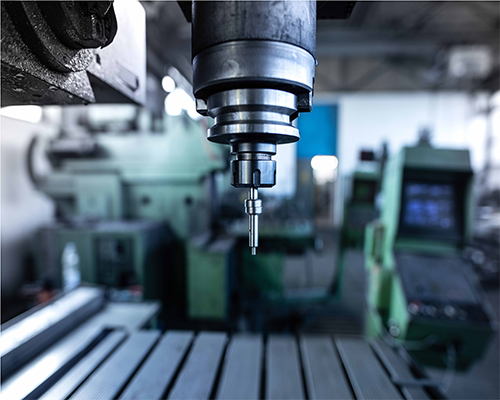When it comes to machining, selecting the right end mill is crucial for achieving precision and productivity. Two common types of end mills used in the industry are corner radius end mills and square end mills. Each has its unique advantages and specific applications. In this blog, we'll delve into the key differences between RNK's corner radius end mills and square end mills to help you make an informed choice.
Corner radius end mills, as the name suggests, have rounded edges or "radius" at their corners. These rounded edges provide added strength and reduce chipping, thereby enhancing the tool’s durability.
1. Improved Durability: The rounded edges help distribute stress more evenly, thereby reducing the risk of chipping or breaking.
2. Enhanced Surface Finish: The smooth transition of the radius at the corners results in a superior surface finish, which is ideal for final machining.
3. Versatility: Suitable for a wide range of materials, including hard-to-machine metals and alloys.
Square end mills, on the other hand, have sharp, ninety-degree corners and are often used for tasks that demand an accurate, flat bottom. These tools are ideal for milling slots, pockets, and other features that require sharp, right-angle cuts.
1. Precision: The sharp edges ensure accurate cuts and clean, angular features, making them perfect for applications needing exact dimensions.
2. Versatility: Square end mills can be used in various machining tasks, from roughing to finishing.
3. Cost-Effective: Generally easier to resharpen, providing longer tool life and reducing overall costs.
The most noticeable difference between the two is the design of the cutting edge. Corner radius end mills have rounded corners, while square end mills have sharp, right-angled corners. This difference affects several machining aspects like durability and surface finish.
Corner radius end mills are better suited for applications involving high-stress cuts and hard materials. The design reduces chipping and extends the tool’s life. Square end mills, however, are ideal for precise machining tasks requiring exact dimensioning with sharp edges.
The rounded edges of corner radius end mills provide a smoother surface finish, making them ideal for final passes and parts that require a high-quality finish. Square end mills, while excellent for precise cuts, may leave a slightly rougher surface, making additional finishing steps necessary.
Choosing between corner radius end mills and square end mills often comes down to your specific machining needs. If you require robust tools that can handle high-stress cuts and provide excellent surface finishes, RNK’s corner radius end mills may be the best option. On the other hand, if you need precision and sharp corners, RNK's square end mills will serve you well.
Understanding the key differences between corner radius end mills and square end mills is essential for any machinist. Both have their unique advantages and applications, and choosing the right one can significantly impact your machining efficiency and final product quality. RNK offers a range of high-quality end mills that cater to various machining needs, ensuring you always have the right tool for the job. Make an informed choice and elevate your machining capabilities with RNK end mills.
